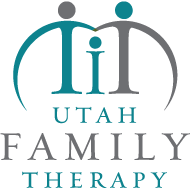Understanding The Effects Of Antibiotics On Mental Health

Effects of Antibiotics, which are medicines that fight off bacterial infections that can cause severe health conditions.
The main objective of antibiotics is to kill the bacteria that is causing the situation you’re experiencing and prevent it from multiplying and spreading.
However, this drug is one of the medicines that must be used with extra precaution. One of the reasons behind this is that taking antibiotics can affect your mental health.
That’s why, before you begin your antibiotic treatment, you might want to discuss this effect with your physician.
Below, we will discuss the link between antibiotics and mental health issues to help you better understand this matter.
In this Article
Link Between Antibiotics * Mental Health Issues
A study has been conducted to understand the relationship between antibiotic exposure and mental health disorders.
It has been noted that broad-spectrum effects of antibiotics are associated with various mental health issues, especially with men.
That’s why antibiotic medication requires a prescription from a physician, as it can also cause mental health issues among patients besides getting antibiotic resistance.
Therefore, antibiotics are highly prohibited without the doctor’s order and guidance.
On the contrary, when you are prescribed an antibiotic by your doctor, you must ensure that you take the correct dose at the right time and throughout the timeline set by your physician.
You can do this by purchasing all the antibiotics you must take throughout your treatment.
For example, if you are diagnosed with pneumonia and are prescribed Augmentin, having a BuzzRx Augmentin Coupon can help you save on purchasing antibiotics.
As a result, you can afford to buy the required number of medicines you need.
You must understand that antibiotic treatment dosage and duration must be appropriately calculated.
Too much can cause severe adverse reactions like antibiotic resistance, kidney disease, and mental health issues.
That said, we will also discuss the other effects of antibiotics and mental health issues you will likely encounter.
Antibiotic Increases the Chances of Having Psychosis
Although it’s a rarity, antibiotics may increase the chances of a patient having psychosis.
It has been noted that specific antibiotics are more prone to cause psychosis in patients.
These antibiotic drug classes are penicillins, macrolides, cephalosporins, etc.
However, the drug categories that have the greatest chances of causing psychosis are macrolides, metronidazole, and fluoroquinolones.
Even though it has been proven that one of the effects of antibiotics is psychosis, the reason behind this association is still unknown.
It has also been noted in the study that the antibiotic class also has a significant impact on whether the medication can cause psychosis in the patients and its severity.
If you didn’t know yet, psychosis is a mental condition that causes you to experience false beliefs, delusions, and seeing or hearing non-existing objects and sounds or hallucinations.
People who experience psychosis will also experience confusion and changes in behaviors and feelings.
Increases the Risk Of Depression and Anxiety
Another thing that you must watch out for when taking antibiotics is that it can increase the risk of depression and anxiety.
Depression and anxiety are the most common psychiatric side effects that an antibiotic creates.
This association is because antibiotics act through the brain-gut-microbiota axis with multiple sites for off-target activity.
As a result, it can result in either negative or positive effects of antibiotics.
Note that an antibiotic doesn’t only possess antimicrobial properties, but it also has numerous off-target effects.
Gut microbes influence brain function by reacting to the vagus nerve or by changing the creation of short-chain fatty acids or amino acid tryptophan.
Tryptophan makes serotonin, the chemical our brain produces that acts as a mood stabilizer and controls happiness and well-being.
Having a low level of serotonin results in depression and anxiety.
Patients with depression and anxiety are more likely to experience such side effects.
Therefore, you must discuss this matter with your physician if you have been diagnosed with depression and anxiety.
However, even those patients who haven’t been diagnosed with depression or anxiety must still be careful when taking antibiotics as they will still experience these side effects of antibiotics.
Triggers Seizures
Another psychiatric effect observed in patients taking antibiotics is the increase in epileptic seizure occurrence.
Several antibiotic classes are known to decrease the inhibitory transmission in the brain, which causes a lowering of the seizure threshold.
The most common types of antibiotics that are known to be neurogenic are penicillins, fluoroquinolones, carbapenems, and cephalosporins.
So, if you’re prescribed these antibiotics, you’ll likely experience seizures as a side effect of antibiotics.
Note that not only epileptic patients will experience seizures when consuming these antibiotics.
Even if you don’t have such a condition, these medications can still trigger seizures if you consume them.
However, the chances of this side effect happening is only 0.13%. But you mustn’t still be complacent, especially if you’re explicitly taking the mentioned antibiotics.
Final Thoughts
Always seek your physician’s advice before taking antibiotics or other medicines.
Don’t self-medicate, as you don’t know the side effects that a drug can provide.
Keep the psychiatric side effects above and ponder on them to understand how risky it is not to familiarize yourself with antibiotics before consuming them.
